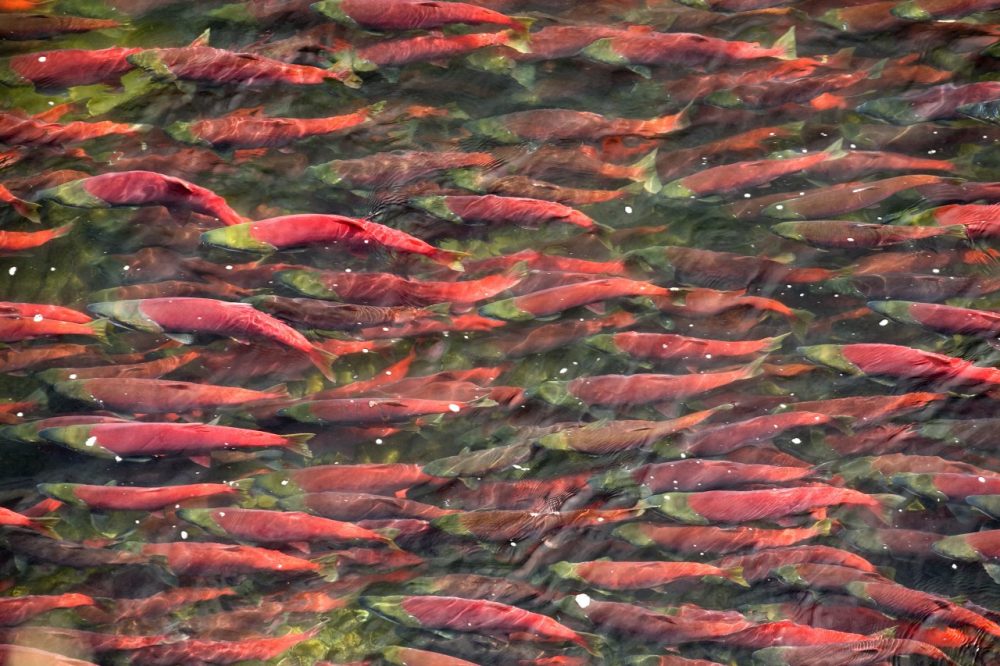Advertisement
A Battle Over Mining In Alaska's Bristol Bay
Resume
If you look at a map of Alaska, near the peninsula that juts out like a tusk into the Bering sea, is a place called Bristol Bay. The Bristol Bay watershed produces around 46 percent of the world's wild sockeye salmon, but the area is also rich with gold and copper, and for years debate has raged about putting a mine in the area.
On Wednesday the Environmental Protection Agency released its final report on mining in the Bristol Bay area. Among the EPA's findings was that just building the mine would destroy 24 to 94 miles of salmon-supporting streams and 1,300 to 5,350 acres of wetlands, ponds and lakes, depending on the size of the mine.
In 2010, a number of tribes in the area called for the EPA to use its power under the Clean Water Act to veto the mine. The EPA has not done that. The Pebble Partnership, which owns the mineral rights, says that doing so is unheard of, and that they should be allowed to undergo the permitting process.
Kimberly Williams, executive director of Nunamta Aulukestai (Caretakers of our Land), an association of village corporations and tribes in the Bristol Bay region, and John Shively, CEO of the Pebble Partnership, join Here & Now's Robin Young.
Interview Highlights
John Shively on why the project should go forward
"This is a project that has national implications. We'll invest $6 to 8 million. That will have an impact on the U.S. economy. It will have an impact on the Alaska economy. We'll have a 1,000 direct jobs. Many of those jobs will go to people that live in the area that currently don't have other opportunities. For the local government, it will mean substantial taxes. For the state, we believe we will pay more in taxes from our mine than the entire commercial fishing industry."
"I don't know what's going to happen next. I do know that what the tribes have asked for is completely unprecedented in the country — to come in and have a federal agency stop a project before we can even bring it to the public, to the very extensive permitting process that's enshrined in both federal and state law. I think that's a hugely dangerous precedent, not only for Alaska, but for the country."
Kimberly Williams on why the mine should not be built
"For people who live out here in Bristol Bay who are commercial salmon fishermen or who are subsistence fishermen, like I am today, it's protecting those 14,000 jobs that come from the salmon industry itself, and making sure that there are no trade-offs, that we don't trade one industry for another. And what we've tried to do is educate the people of Bristol Bay and the nation, and even the world, on what this project and what large-scale mining can do to Bristol Bay and the existing fishery that we have here."
"We've actually conducted polling in the region, and we've seen polling of people, as they've become more educated about large-scale mining, have gone from 60 percent opposed to over 80 percent opposed to large-scale mining."
Guests
- Kimberly Williams, executive director of Nunamta Aulukestai.
- John Shively, CEO of the Pebble Partnership.
This segment aired on January 17, 2014.